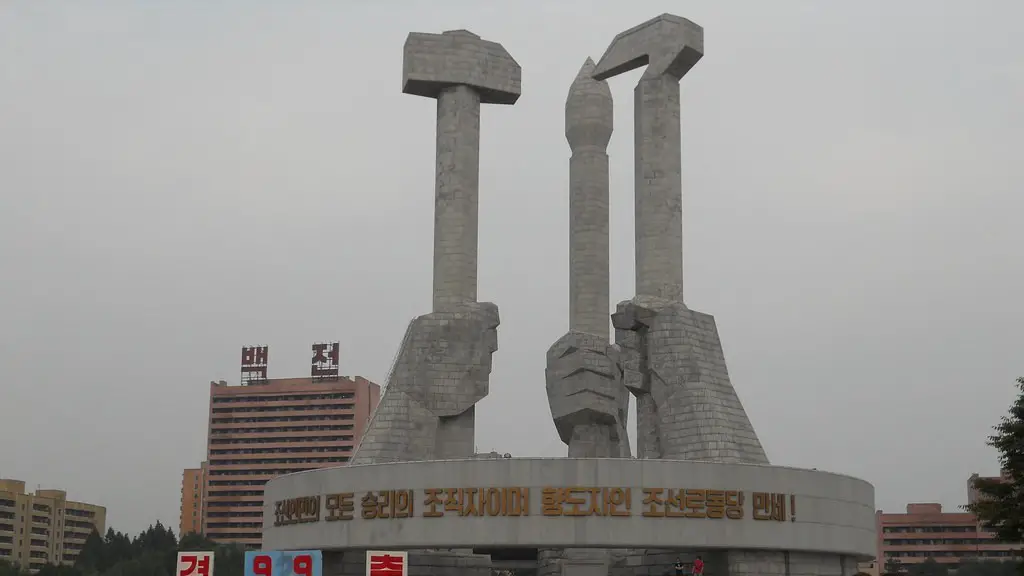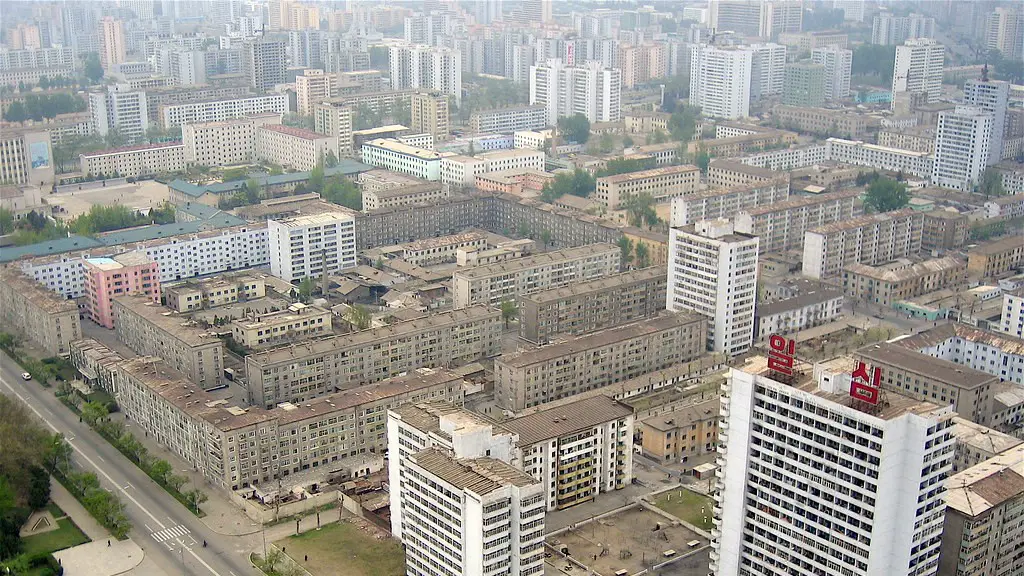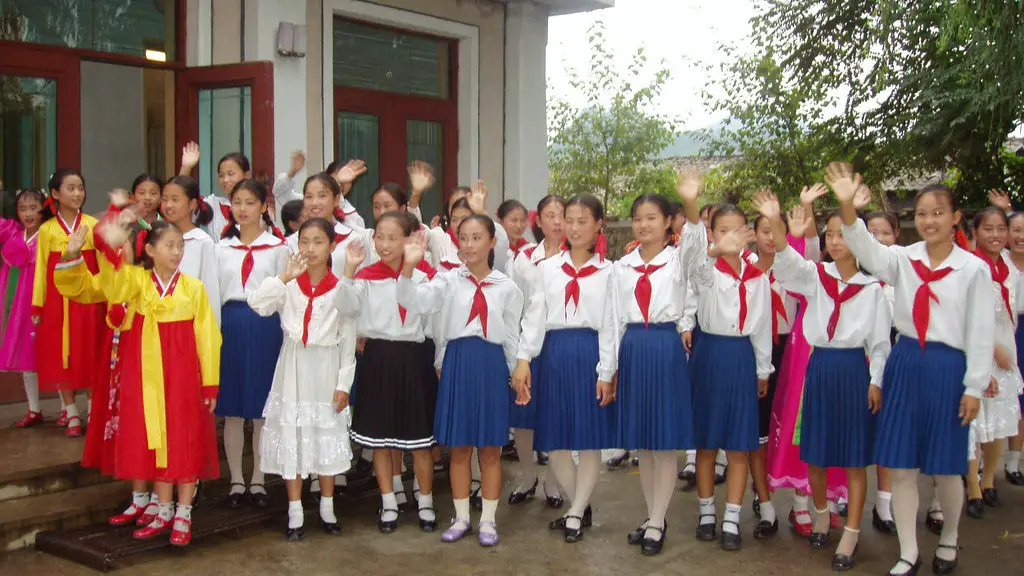North Korea is one of the most isolated and shielded countries in the world. Despite being presented an image of a strong, resilient nation, its citizens suffer under an oppressive dictatorship. Historically, the Democratic People’s Republic of Korea, commonly referred to as North Korea, was formed after the end of World War II in 1945 and was established as a socialist state, openly opposing capitalism and maintaining an alliance with the Soviet Union and China.
The country has functioned under an authoritarian regime since 1948 with an iron grip on many aspects of everyday life – from food, to leisure, to media and the arts, North Koreans have little choice but to accept the government’s dictatorial rule. In 1953, Kim Il-sung solidified his power by introducing the Ten Principles – a series of laws that laid out the system of absolute rule he was establishing.
North Korea is known for its rigid, authoritative structure and often extreme rules that were imposed on the country’s citizens. Some of these include executing those deemed to be critical of the government, oppressive surveillance, and complete control of media and information. North Koreans are also severely restricted from travelling outside the country’s borders, and all contact with foreign citizens is also strongly limited.
One of the most concerning characteristics of a dictatorship is the near total lack of civil liberties and human rights – North Koreans are no exception. Poor economic planning has left citizens suffering under massive poverty and denied access to clean water. This is further exacerbated by the dire state of public healthcare and the inability of individuals to choose their own place of work.
The country is infamous for its recurrent violations of other countries’ sovereignty, through hostile acts such as the nuclear weapons program, cyberattacks, and espionage. This hostile policy, coupled with its secretive and dangerous regime, has caused most of the international community to oppose North Korea’s dictatorship and attempt to internationalise the issue and impose sanctions on the communist state.
The North Korean government is still cautious of surrendering its absolute power and has actively gone to lengths to maintain its control over its people. This can be seen in their attitude towards foreign attempts such as the United Nations’ Human Rights Council, which North Korea has openly disregarded as ‘a theatre of the absurd’. Additionally, in recent years North Korea has increased its efforts in legal crackdowns of dissidents and activists deemed a threat to the regime.
In spite of the United Nations’ diplomatic efforts and the international pressure, North Korea remains heavily systematised under a dictatorship that imposes a lack of freedom, democracy and human rights on its citizens.
Political Oppression
North Korea’s dictatorship is largely maintained by a well-developed web of repression. One of the primary contributing factors to this is the state’s heavy emphasis on surveillance and its tendency to put a negative value on freedom of expression. This could be seen recently in the process against the country’s former leader, Kim Jong-un, who was convicted of numerous crimes against the regime, including treason.
The oppressive political regime is also maintained through the countries penal system, which is considered by some to be the world’s most severe – sanctions consist of collective punishments, mass execution, and forced labour. North Korea also has a strict three generation punishment rule where any family members of dissidents will be punished along with the criminal.
Role of Media
Another major contributing factor to North Korea’s dictatorship is the country’s media policy. All media belongs to the state and is therefore heavily regulated, with strict censorship placed upon news, art, films and publications.
The lack of freedom of expression has made it hard for the international community to accurately document the country’s situation or document the regimes worst violations.
Culture of Silence
North Korean citizens are also socialised to remain silent. All forms of dissent are perceived to be directed against the regime and efforts are taken to ensure citizens do not speak out against the regime, primarily through fear of retribution. School curriculums are also modified to contain content that reinforces the ideology of the state and its leader.
Economic Status
The lack of political and civic freedom are closely linked to North Korea’s crippled economy. In the past, military-first policy has been used to back the regimes agenda, resulting in a lack of economic growth and an incredibly poverty-stricken population.
The country’s strict political structure has made it hard for the country to open up to international markets and limited the domestic market’s potential to develop and create opportunities for growth, resulting in a severe lack of resources and basic amenities like power and medical care.
International Isolation
North Korea’s isolation is worsened by the fact that relationships with foreign countries are almost non-existent. Through their hostile behaviour and refusal to compromise the regime is continuing to alienate the rest of the international community, further affecting the country’s economy and diplomatic relations. Even long-standing allies like China and Russia have cut off aid to the country due to their refusal to curtail their nuclear ambitions.
Human Rights Abuses
The United Nations Human Rights Council has documented illnesses, violence, torture and cases of execution in North Korea, all of which violate basic human rights. Political prisoners, dissidents and their families are subjected to horrific treatment in correctional facilities, and those opposing the regime have gone missing in the past.
Furthermore, issues such as gender inequality are rampant in North Korea, especially in the area of education. Women are marginalised in the workplace and face significant restrictions in achieving senior positions, despite forming a prominent and growing element of the country’s workforce.
North Korean Humanitarian Crisis
The secretive and oppressive regime in North Korea has hindered international attempts to help the country’s citizens and has resulted in severe shortages of basic resources such as food, water and medical care. An astonishing 40% of North Koreans suffer from malnutrition and refugeess have stated that the quality of food and basic amenities has deteriorated sharply in the past few years.
The lack of food, healthcare and proper housing makes the situation all the more dire for the people of North Korea who, despite the governments attempts, are still able to communicate their suffering abroad to the rest of the world.


